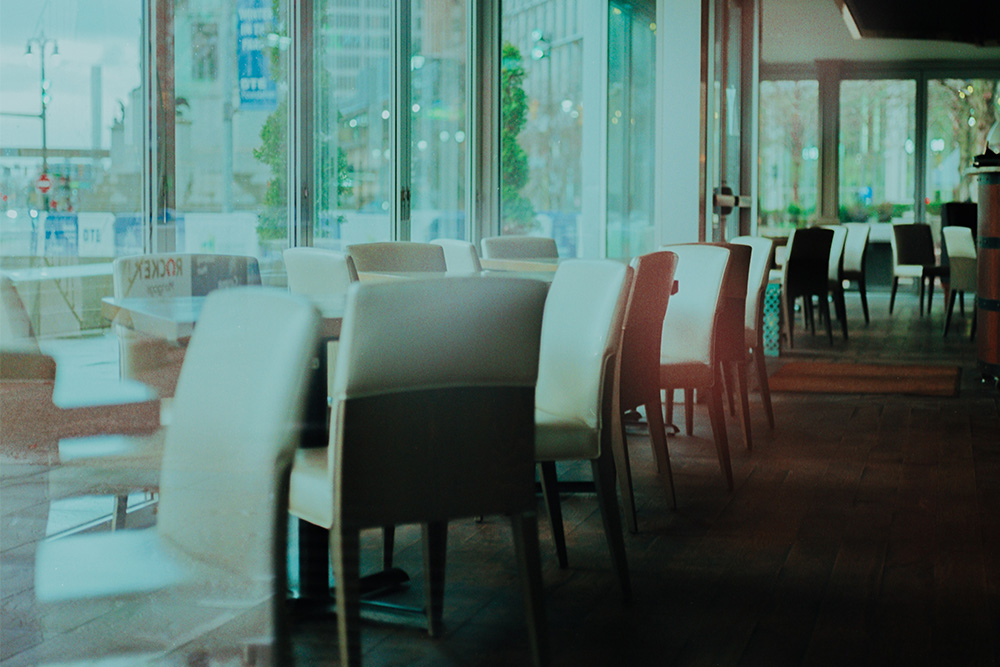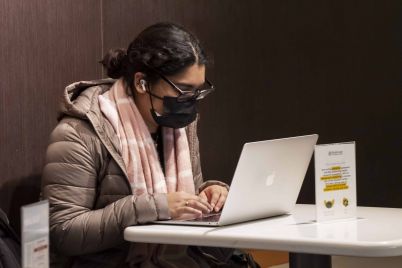
Restaurants still closed for indoor dining, leaving many in the industry struggling to get by. Eric Le | Washtenaw Voice
By Cydney Heed
Staff Writer
As Michigan enters week five of a COVID-related ban on indoor dining, restaurant workers are struggling to get by.
Zak Beaty, a local bouncer and back of house employee, said, “The last shut down left a ton of questions for this one, we were told two weeks and were given three/four months. But at least in the summer we had the UIA [Unemployment Insurance Agency] money… This time, we hear three weeks, we instantly think five months. It’s worrying.”
Front of house employees—like servers and hosts—have already spent months trying to survive on tips while restaurants were limited to 50% capacity. Now, many are experiencing yet another decline in their paychecks.
Kelly France, a local server, said, “I think I worked three days this past week and I haven’t been able to make $100.”
Even though they generally do not rely on tips to supplement their hourly wage, back of house employees have still had to contend with uncertainty about their hours.
“I have two jobs and am currently working a total of seven-10 hours a week,” Beaty said.
Back in the spring, when Michigan’s Stay Home, Stay Safe order was in effect, out of work restaurant employees could at least count on an extra $600 per week to supplement Michigan’s unemployment benefits.
“I’ll say the extra 600 was actually pretty amazing, we hoarded it like squirrels, not knowing what the future would bring,” said Emily van der Waard, a local chef.
This time around, there are no extra benefits. The United States Congress has repeatedly failed to pass a relief bill after the extra benefits expired over the summer.
The maximum unemployment benefit in Michigan is $362 per week, according to Michigan.gov.
Even though many employers took measures to protect their workers, restaurant employees often had to contend with customers who did not want to follow social distancing guidelines.
Chris Nowak, a door runner, said, “Right before we went into our second quarantine I was working and I asked someone ‘I just need to take the temperature on the inside of your wrist,’ and the man said ‘are you [expletive] kidding me? Are you my doctor? This is an invasion of my privacy.’”
Nowak continued, “This isn’t the only time that I have been or have seen my coworkers getting yelled at. At one point back in the summer, my 17-year-old coworker got yelled at and had masks thrown at her because she asked a woman for her temperature.”
However, some workers also expressed appreciation for customers who have tried to help their restaurants—many of them locally owned—stay afloat.
“The customers are doing their best to support us,” France said. “They’re doing the best they can to order from us as often as they can, but it’s not enough.”
Many workers found themselves caught between the hope that business would pick up and fear of catching the virus.
Van der Waard wrote, “Every day I wanted to be a real restaurant again, but when we would be busy we were scared that we would get COVID from a guest, there were several that came in with persistent coughs.”
All of the workers agreed that one of their biggest needs right now is money.
France said, “If we had a way to supplement our income like they did the first time around…and that way, I was still able to go to the store and buy the things I need, and spend money, pay my bills. And that keeps the economy going.”
Workers across the country have already chosen to leave the restaurant industry in favor of something more “pandemic proof.” However, there are still plenty who are reluctant to leave behind the careers they’ve put years of their lives toward.
“I’m 52. It’s not like I can go to school or have this new dream and start over. So that’s my plan. I’m going to supplement my income with DoorDash, or something like that, and just try to stick with it,” France said.


